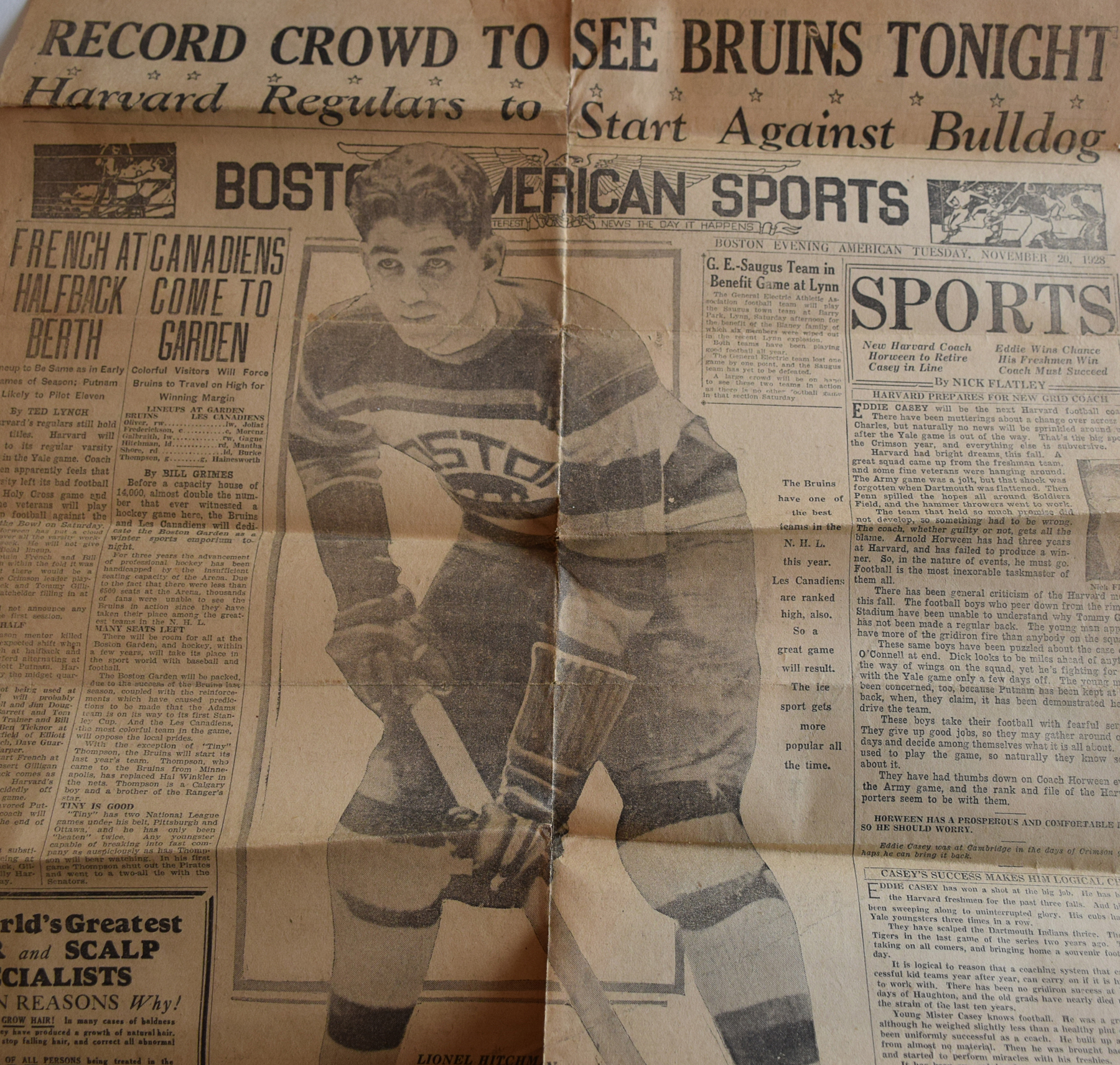On Becoming a Writer 3/16/2019

Lionel Hitchman, "Hitch," on the front cover of the Boston American sports section, the first night the Boston Bruins played in the new Boston Garden, November 20, 1928. He indeed was larger than life!
For my first book, I wrote a biography of my grandfather, Lionel Hitchman: Hitch, Hockey's Unsung Hero. A perfect choice. His story was ever present in our family, but not well known elsewhere, even though he was compelling and larger than life.
To tell Hitch's story, I began with my childhood impressions of him and added in the recollections of various family members. I also had the privilege of speaking to notable Bruin Milt Schmidt and others who knew him well. Then I poured over my grandparents' meticulous records.
Next, I went in search of information on Hitch at some select libraries, archives, museums, and various hockey and newsgathering databases. I walked Hitch's neighborhoods, went to the properties he once lived at and the church and school he attended.
My problem was not a scarcity of information, but how to sort, organize and choose what to include and what to leave out. It seemed overwhelming, but a good problem to have, no doubt.
I built a chronology of events from 1874 to the present. A thousand plus pages later, and I still had a few gaps in the story that needed filling. I enjoyed this part of the job—being an amateur sleuth, putting the pieces together.
As the story took shape, the theme became evident: "Hitch, the greatest player not in the Hockey Hall of Fame." It was bold, and likely some would disagree, as the Hall has overlooked other worthy hockey players. But Hitch just seemed to occupy a special category of omission. It's complicated because the original oversight wasn't about whether he was deserving or not (more on that in the book).
With the information organized into chapters, I began to write, and immediately felt the enormity of getting Hitch's story right. Especially in the face of such a lofty theme. I decided to rely heavily on the verbatim words of others. This I hoped would give the reader an unbiased perspective for which to assess the soundness of the book's premise.
I painstakingly wove hundreds of excerpts from newspaper articles throughout the story. One such example was the words of the preeminent sports editor, Elmer Ferguson, who declared that Hitch was the "greatest defensive" defenseman of his day, which added a certain weight to the story.
Writing this book has been a fascinating journey. It led me to places I wouldn't have thought of going and surprised me in so many ways. I still have questions, which over time I hope to answer.
Thanks to my grandfather, my writing adventure has begun!
